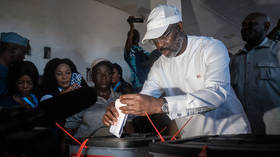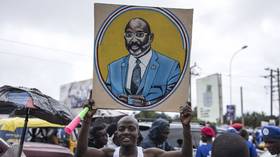Liberia ends voting in presidential election with no winner

Liberia will hold a second round of elections next month after President George Weah and his main opponent, Joseph Nyumah Boakai, both failed to win the required majority in the first round of voting, the country’s electoral body announced on Tuesday.
According to the National Elections Commission (NEC), President Weah received 43.83% of the vote in the October 10 election, while former Vice President Boakai obtained 43.44%. The contest was the tightest in the West African country since the end of a civil war around two decades ago.
Liberia’s constitution requires a presidential candidate to secure more than 50% of the valid votes cast in the first ballot to achieve an outright victory.
“With the results of the 10th October polls showing that no presidential ticket obtained 50 percent plus one vote, a run-off election is hereby declared to be held on Tuesday, 14 November 2023 between the two tickets that obtained the highest number of votes,” the NEC stated.
Weah, 57, is a former international footballer who remains the only African to have won the Ballon d’Or, the game’s most prestigious individual award. He will now face off against Boakai after none of the remaining 18 candidates received more than 3% of the vote.
Weah was elected president in 2017 during Liberia’s first democratic transition of government in 70 years, winning 60% of the vote in the second round against Boakai. The country had endured two devastating civil wars between 1989 and 2003 that took the lives of 25,000 people, as well as a deadly Ebola outbreak in 2016.
The first term under Weah has been marred by allegations of corruption, with his rival Boakai accusing him of leading Africa’s oldest independent republic into economic hardship. The president has also been accused of failing to fulfill key campaign promises, including ensuring justice for victims of the country’s civil wars.
Boakai, who served as vice president under Ellen Johnson Sirleaf, Africa’s first female elected head of state, from 2006 to 2018, has pledged to form a government that truly represents Liberians’ political, social, and religious diversity if elected president.
The October 10 elections, the first since the UN ended its peacekeeping mission in Liberia in 2018, were monitored by observers from the European Union, the African Union, the West African regional bloc ECOWAS, and the US. The UN Mission in Liberia (UNMIL) was established in 2003 to monitor a ceasefire agreement following the end of the second civil war.
Last week, the Liberia Elections Observation Network (LEON) commended the NEC for its transparency, noting that the official results announced earlier by the commission were consistent with sample-based observation findings.













